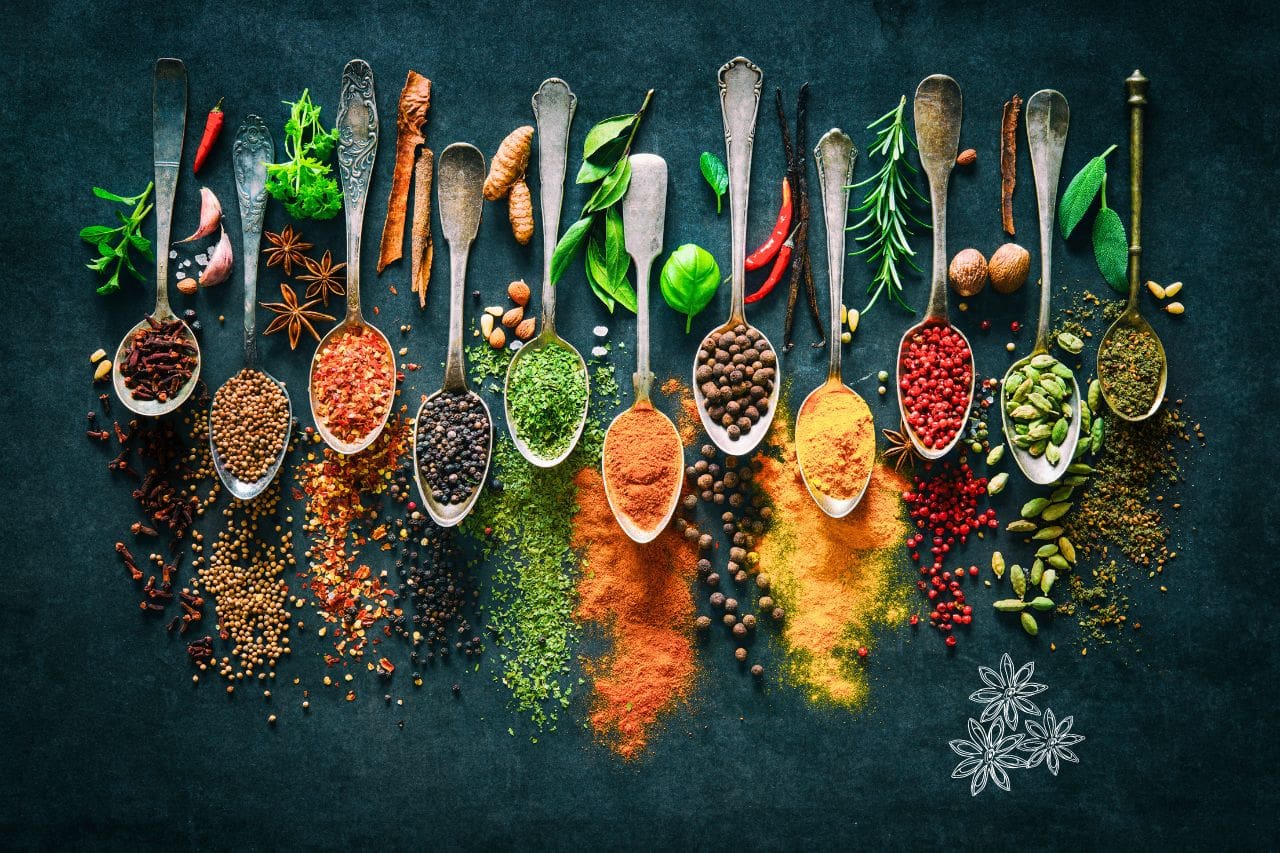

Spices do more than just add flavor to your meals—they can also offer a range of health benefits. From boosting your immune system to improving digestion, spices have powerful properties that can enhance your overall well-being. Whether you’re looking to reduce inflammation, cut down on calories, or support your heart health, adding more spices to your diet is a simple and tasty way to achieve your health goals.
Antioxidants are substances that protect your cells from damage caused by free radicals. Free radicals are harmful molecules that can lead to oxidative stress, which is linked to various diseases. Including more antioxidants in your diet can help reduce this damage and improve overall health.
Several spices are known for their high antioxidant content. Here are a few to consider:
Adding these spices to your meals is easier than you might think. Here are some tips:
Spices not only add flavor to your meals but also provide a significant health boost. Including a variety of antioxidant-rich spices in your diet can help protect your cells from damage and improve your overall well-being.
Inflammation is the body’s way of protecting itself from harm. However, when it becomes chronic, it can lead to various health issues. Chronic inflammation is linked to diseases like arthritis and heart disease.
Certain spices are known for their anti-inflammatory properties. Here are some of the best:
Incorporating these spices into your meals can help reduce inflammation. Here are some ideas:
Adding a variety of spices to your meals not only enhances flavor but also provides health benefits. Try experimenting with different spices to find what you enjoy the most.

Many people face digestive problems like bloating, gas, and indigestion. These issues can be uncomfortable and disrupt daily life. Fortunately, certain spices can help ease these symptoms and improve overall digestion.
Several spices are known for their digestive benefits:
Incorporating these spices into your diet is easy and can be quite enjoyable. Here are some tips:
To support your digestion, learn to love bitters, sip on some herbs, chew on fennel and upgrade your salad.
By adding these spices to your meals, you can improve your digestion and enjoy your food more. Remember, it’s all about experimenting and finding what works best for you.
Many sauces, dressings, and oils are loaded with extra calories. These additives can make your meals taste great, but they often come with a high calorie count. This can be a problem if you’re trying to eat healthier or lose weight.
Spices are a fantastic way to add flavor without adding calories. Here are some great options:
Using the right cooking techniques can also help you get the most flavor out of your spices. Here are some tips:
By using spice blends, you can easily add a variety of flavors to your meals without having to blend your own creations. This makes healthy eating exciting and enjoyable.
Incorporating these tips and spices into your cooking can help you create delicious, healthy meals that are full of flavor without the extra calories.
Spices are not just for flavor; they are packed with nutrients that can benefit your heart. For example, cardamom may help lower blood pressure and have other positive effects on obesity, triglyceride levels, cholesterol levels, and insulin. Including spices like turmeric, ginger, and garlic in your diet can provide antioxidants and anti-inflammatory properties that support heart health.
Using spices can be a great way to reduce your sodium intake. High sodium levels are linked to high blood pressure and heart disease. Instead of reaching for the salt shaker, try using spices like basil, oregano, and cumin to add flavor to your meals. This not only makes your food tasty but also helps in maintaining a healthy heart.
Here are some easy recipes to get you started:
Adding a variety of spices to your food can make your meals both delicious and beneficial for your heart. Try experimenting with different spices to find what you love!

Spices are not just for flavor; they can also help keep you healthy. Many spices have antiviral and antimicrobial effects. This means they can help fight off germs and keep you from getting sick. For example, garlic and turmeric are known to have these properties.
Here are some spices that can help boost your immune system:
Incorporating these spices into your daily meals can be easy and fun. Here are some tips:
Adding a variety of spices to your food can be a simple way to boost your immune system naturally. Try experimenting with different spices to find what you like best.
What we eat can have a big impact on how we feel. Research shows many common kitchen herbs and spices can be very effective for improving mental health. By adding the right spices to your meals, you can help boost your mood and overall well-being.
Here are some spices known to help lift your spirits:
Adding these spices to your daily diet is easy. Here are some tips:
Experimenting with different spices can be a fun way to improve your mental health. Try adding a new spice to your favorite dish and see how it makes you feel.
Adding more spices to your meals isn’t just about making your food taste better—it’s also a simple way to boost your health. Spices like turmeric, ginger, and cinnamon have been shown to reduce inflammation and provide antioxidants. Others, like cayenne pepper, can help with pain relief and even improve digestion. By experimenting with different spices, you can make your meals more exciting and nutritious. So next time you’re cooking, reach for the spice rack and enjoy the benefits of a more flavorful and healthier diet.
Adding more spices to your meals can make your food taste better and can also offer health benefits like reducing inflammation, boosting antioxidants, and aiding digestion.
Spices like turmeric, cinnamon, and black pepper are rich in antioxidants, which help protect your cells from damage.
Yes, spices such as ginger, garlic, and turmeric have anti-inflammatory properties that can help reduce inflammation in the body.
Spices like ginger, cumin, and fennel can help with digestion by reducing bloating and gas. They can also stimulate the digestive system to work more efficiently.
Yes, spices like black pepper, paprika, and garlic add a lot of flavor without adding extra calories. They are a great way to enhance the taste of your food without using high-calorie additives.
Spices like turmeric, cinnamon, and garlic contain nutrients that are good for heart health. They can help reduce cholesterol levels and improve blood circulation.
For more life-changing articles, Click here
SelfStalker.com

Monday - Thursday 7 AM - 5 PM PST
admin@selfstalker.com support@selfstalker.com